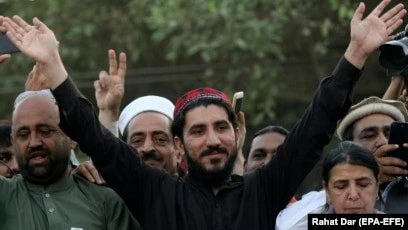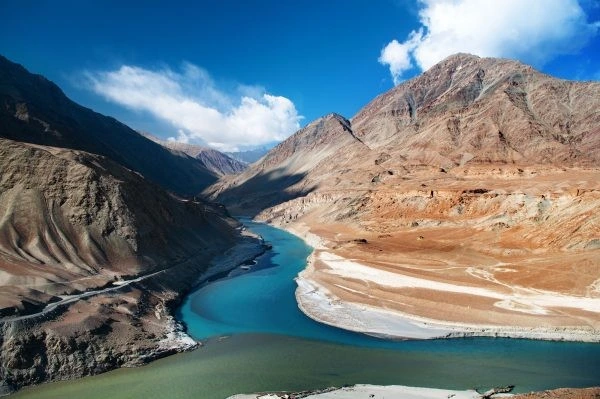Pakistan’s Fiscal Stability Amidst Military Tensions

In recent times, the geopolitical tensions between Pakistan and India have remained a source of concern, especially with the ongoing military escalation. However, Pakistan’s Finance Minister, Muhammad Aurangzeb, recently commented that a full-scale conflict with India would not have a significant fiscal impact on the country, and that it could be managed within the existing financial framework. His assertion that the situation would not trigger a major economic crisis reflects an optimism that the existing fiscal mechanisms and resources are sufficient to handle any negative repercussions.
At first glance, it may seem counterintuitive to downplay the potential economic fallout from military conflict, especially with India, a regional power. The two nations have a long history of political and military strife, and any military confrontation inevitably creates anxiety about economic consequences. The logic, however, lies in understanding the nature of the conflict and the broader macroeconomic structure that Pakistan currently operates within. Pakistan’s economy, while not without its challenges, is not as fragile as it might have been perceived during past escalations. Pakistan benefits from the backing of international institutions, such as the International Monetary Fund (IMF), which provides a buffer against external shocks.
Moreover, Pakistan’s economic outlook is relatively stable, despite the ongoing conflict, thanks to the diversification of trade relations and improvements in sectors that provide revenue. Aurangzeb’s comment points to the fact that Pakistan’s trade, both regionally and globally, is no longer solely dependent on India. While India remains an important trading partner, Pakistan has diversified its trade routes, with a focus on relationships with China, the Middle East, and Western countries. The strengthening of trade partnerships, especially under the China-Pakistan Economic Corridor (CPEC), offers Pakistan avenues to maintain economic stability despite regional turbulence.
The government’s ability to manage fiscal resources effectively has allowed Pakistan to weather previous external crises with relative stability. Even during the past periods of military escalations, Pakistan has found a way to balance fiscal discipline with national security needs. The country’s capacity to adjust to such pressures comes from its experience and strategic approach to economic management, ensuring that it can prioritize resources effectively.
However, a military conflict, especially one involving a neighboring nuclear power, has far-reaching consequences that extend beyond economic impacts. While Aurangzeb may downplay the fiscal impact of such a confrontation, it is critical to acknowledge the broader socio-political consequences that may arise. While the government’s ability to weather these kinds of crises is important, the people are the ones who suffer most, with higher inflation, rising unemployment, and potential declines in living standards.
Despite the economic measures in place, Pakistan’s vulnerability to external shocks such as rising oil prices, inflationary pressures, or a slowdown in global demand—remains. In a time of military conflict, the global market might react unpredictably, leading to adverse effects on trade, currency value, and economic sentiment. Furthermore, Pakistan would likely face additional international scrutiny, potentially damaging its foreign investment outlook, even if it successfully navigates the military conflict.
Furthermore, any military escalation would significantly strain Pakistan’s defense and security budgets. While the finance minister has indicated that there would not be a dramatic fiscal fallout, the country may still need to dedicate additional resources for operational needs, including troop mobilization, weapons procurement, and logistical support. These costs can put pressure on Pakistan’s overall budget and may divert funds away from key developmental projects. In such a situation, the government’s ability to balance the immediate needs of national defense with longer-term investment in education, healthcare, and infrastructure will be tested.
Pakistan’s resilience, both economically and diplomatically, allows the country to seek long-term solutions to the tension with India. Initiating talks, offering diplomatic alternatives, and working with international organizations are essential strategies for managing such conflicts. By fostering peace through dialogue, Pakistan can avoid protracted conflict, reduce military spending, and maintain its economic stability.
In conclusion, while Aurangzeb’s statement on the limited fiscal impact of a potential conflict with India reflects confidence in Pakistan’s financial management and economic resilience, it is essential to consider both the direct and indirect consequences of military escalation. The stability of Pakistan’s economy, while robust, relies on the careful balancing of security needs with socio-economic progress. As tensions with India continue to evolve, the importance of diplomacy, careful resource allocation, and international cooperation becomes even more critical for maintaining peace and stability in the region. The government’s role in navigating this complex situation will be crucial in ensuring that Pakistan’s economic well-being remains protected in the face of external challenges.











